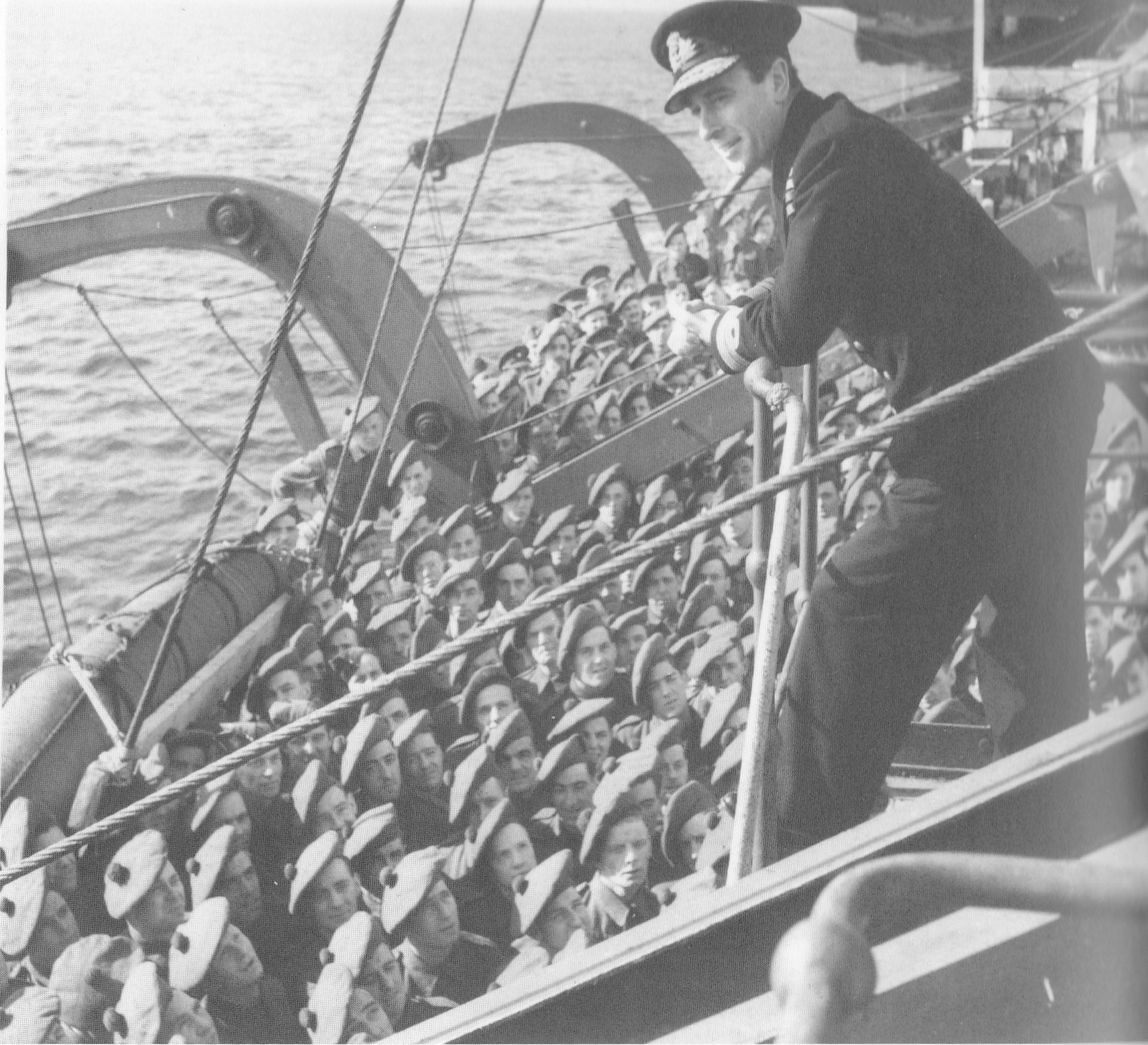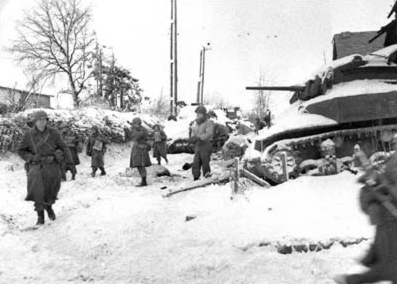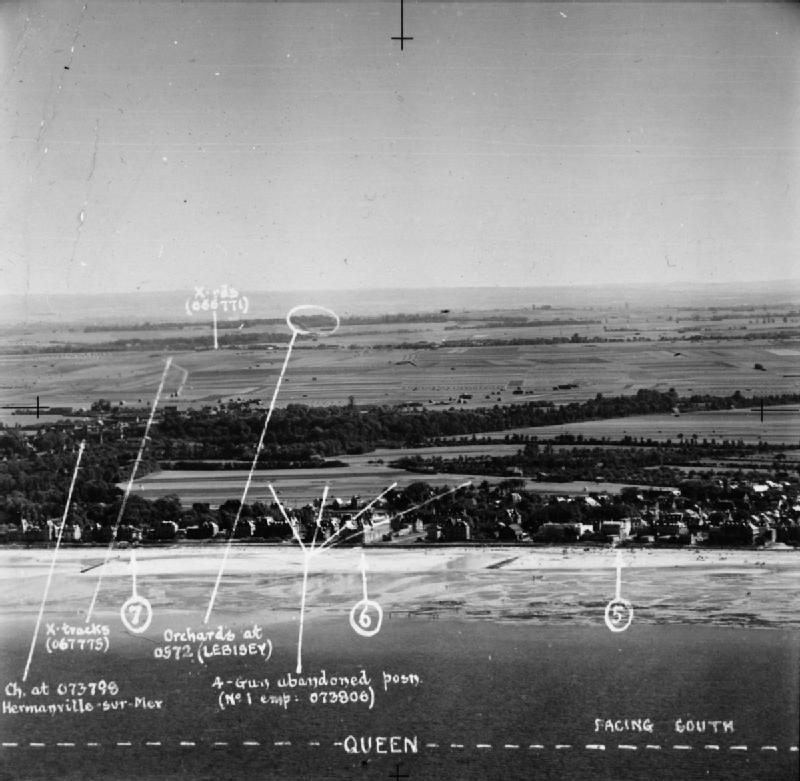|
No. 6 Commando
No. 6 Commando was a battalion-sized British Army commando unit of the Second World War. Although it was raised to conduct small-scale raids and harass garrisons along the coast of German-occupied France, it was mainly employed as a highly trained infantry assault unit. Formed in July 1940, No. 6 Commando's first involvement in operations came in late 1941 when it contributed small forces to raids in Norway. In April 1942 the whole unit was scheduled to take part in Operation Myrmidon, in France, but this raid was eventually cancelled. As a result, the first full-scale operation that No. 6 Commando took part in was Operation Torch, the Allied landings in Algeria in November 1942. Later, it joined the advance into Tunisia in 1943. On 6 June 1944, it participated in the D-Day landings in France as part of Operation Overlord, coming ashore with the 1st Special Service Brigade which was tasked with linking up with the troops from the 6th Airborne Division on the eastern flank of Sword. ... [...More Info...] [...Related Items...] OR: [Wikipedia] [Google] [Baidu] |
6 Commando Adour Raid 1942
6 (six) is the natural number following 5 and preceding 7. It is a composite number and the smallest perfect number. In mathematics Six is the smallest positive integer which is neither a square number nor a prime number; it is the second smallest composite number, behind 4; its proper divisors are , and . Since 6 equals the sum of its proper divisors, it is a perfect number; 6 is the smallest of the perfect numbers. It is also the smallest Granville number, or \mathcal-perfect number. As a perfect number: *6 is related to the Mersenne prime 3, since . (The next perfect number is 28.) *6 is the only even perfect number that is not the sum of successive odd cubes. *6 is the root of the 6-aliquot tree, and is itself the aliquot sum of only one other number; the square number, . Six is the only number that is both the sum and the product of three consecutive positive numbers. Unrelated to 6's being a perfect number, a Golomb ruler of length 6 is a "perfect ruler". Six is a con ... [...More Info...] [...Related Items...] OR: [Wikipedia] [Google] [Baidu] |
Allies Of World War II
The Allies, formally referred to as the United Nations from 1942, were an international military coalition formed during the Second World War (1939–1945) to oppose the Axis powers, led by Nazi Germany, Imperial Japan, and Fascist Italy. Its principal members by 1941 were the United Kingdom, United States, Soviet Union, and China. Membership in the Allies varied during the course of the war. When the conflict broke out on 1 September 1939, the Allied coalition consisted of the United Kingdom, France, and Poland, as well as their respective dependencies, such as British India. They were soon joined by the independent dominions of the British Commonwealth: Canada, Australia, New Zealand and South Africa. Consequently, the initial alliance resembled that of the First World War. As Axis forces began invading northern Europe and the Balkans, the Allies added the Netherlands, Belgium, Norway, Greece, and Yugoslavia. The Soviet Union, which initially had a nonaggression pa ... [...More Info...] [...Related Items...] OR: [Wikipedia] [Google] [Baidu] |
Captain (British Army And Royal Marines)
Captain (Capt) is a junior officer rank of the British Army and Royal Marines and in both services it ranks above lieutenant and below major with a NATO ranking code of OF-2. The rank is equivalent to a lieutenant in the Royal Navy and to a flight lieutenant in the Royal Air Force. The rank of captain in the Royal Navy is considerably more senior (equivalent to the Army/RM rank of colonel) and the two ranks should not be confused. In the 21st-century British Army, captains are often appointed to be second-in-command (2IC) of a company or equivalent sized unit of up to 120 soldiers. History A rank of second captain existed in the Ordnance at the time of the Battle of Waterloo. From 1 April 1918 to 31 July 1919, the Royal Air Force maintained the junior officer rank of captain. RAF captains had a rank insignia based on the two bands of a naval lieutenant with the addition of an eagle and crown above the bands. It was superseded by the rank of flight lieutenant on the fol ... [...More Info...] [...Related Items...] OR: [Wikipedia] [Google] [Baidu] |
Territorial Army (United Kingdom)
The Army Reserve is the active-duty volunteer reserve force of the British Army. It is separate from the Regular Reserve whose members are ex-Regular personnel who retain a statutory liability for service. The Army Reserve was known as the Territorial Force from 1908 to 1921, the Territorial Army (TA) from 1921 to 1967, the Territorial and Army Volunteer Reserve (TAVR) from 1967 to 1979, and again the Territorial Army (TA) from 1979 to 2014. The Army Reserve was created as the Territorial Force in 1908 by the Secretary of State for War, Richard Haldane, when the Territorial and Reserve Forces Act 1907 combined the previously civilian-administered Volunteer Force, with the mounted Yeomanry (at the same time the Militia was renamed the Special Reserve). Haldane planned a volunteer "Territorial Force", to provide a second line for the six divisions of the Expeditionary Force which he was establishing as the centerpiece of the Regular Army. The Territorial Force was to be comp ... [...More Info...] [...Related Items...] OR: [Wikipedia] [Google] [Baidu] |
Scarborough, North Yorkshire
Scarborough () is a seaside town in the Borough of Scarborough in North Yorkshire, England. Scarborough is located on the North Sea coastline. Historic counties of England, Historically in the North Riding of Yorkshire, the town lies between 10 and 230 feet (3–70 m) above sea level, from the harbour rising steeply north and west towards limestone cliffs. The older part of the town lies around the harbour and is protected by a rocky headland. With a population of 61,749, Scarborough is the largest seaside resort, holiday resort on the Yorkshire Coast and largest seaside town in North Yorkshire. The town has fishing and service industries, including a growing digital and creative economy, as well as being a tourist destination. Residents of the town are known as Scarborians. History Origins The town was reportedly founded around 966 AD as by Thorgils Skarthi, a Viking raider, though there is no archaeological evidence to support these claims, made during the 1960s, as p ... [...More Info...] [...Related Items...] OR: [Wikipedia] [Google] [Baidu] |
War Office
The War Office was a department of the British Government responsible for the administration of the British Army between 1857 and 1964, when its functions were transferred to the new Ministry of Defence (MoD). This article contains text from this source, which is available under th Open Government Licence v3.0 © Crown copyright It was equivalent to the Admiralty, responsible for the Royal Navy (RN), and (much later) the Air Ministry, which oversaw the Royal Air Force (RAF). The name 'War Office' is also given to the former home of the department, located at the junction of Horse Guards Avenue and Whitehall in central London. The landmark building was sold on 1 March 2016 by HM Government for more than £350 million, on a 250 year lease for conversion into a luxury hotel and residential apartments. Prior to 1855, 'War Office' signified the office of the Secretary at War. In the 17th and 18th centuries, a number of independent offices and individuals were re ... [...More Info...] [...Related Items...] OR: [Wikipedia] [Google] [Baidu] |
Hastings Ismay, 1st Baron Ismay
Hastings Lionel Ismay, 1st Baron Ismay (21 June 1887 – 17 December 1965), was a diplomat and general in the British Indian Army who was the first Secretary General of NATO. He also was Winston Churchill's chief military assistant during the Second World War. Ismay was born in Nainital, India, in 1887, and educated in the United Kingdom at Charterhouse School and the Royal Military College, Sandhurst. After Sandhurst, he joined the Indian Army as an officer of the 21st Prince Albert Victor's Own Cavalry. During the First World War, he served with the Camel Corps in British Somaliland, where he joined in the British fight against the "Mad Mullah", Mohammed Abdullah Hassan. In 1925, Ismay became an Assistant Secretary of the Committee of Imperial Defence (CID). After being promoted to the rank of colonel, he served as the military secretary for Lord Willingdon, the Viceroy of India, then returned to the CID as Deputy Secretary in 1936. On 1 August 1938, shortly before the ... [...More Info...] [...Related Items...] OR: [Wikipedia] [Google] [Baidu] |
Winston Churchill
Sir Winston Leonard Spencer Churchill (30 November 187424 January 1965) was a British statesman, soldier, and writer who served as Prime Minister of the United Kingdom twice, from 1940 to 1945 Winston Churchill in the Second World War, during the Second World War, and again from 1951 to 1955. Apart from two years between 1922 and 1924, he was a Member of Parliament (United Kingdom), Member of Parliament (MP) from 1900 to 1964 and represented a total of five UK Parliament constituency, constituencies. Ideologically an Economic liberalism, economic liberal and British Empire, imperialist, he was for most of his career a member of the Conservative Party (UK), Conservative Party, which he led from 1940 to 1955. He was a member of the Liberal Party (UK), Liberal Party from 1904 to 1924. Of mixed English and American parentage, Churchill was born in Oxfordshire to Spencer family, a wealthy, aristocratic family. He joined the British Army in 1895 and saw action in British Raj, Br ... [...More Info...] [...Related Items...] OR: [Wikipedia] [Google] [Baidu] |
Dunkirk Evacuation
The Dunkirk evacuation, codenamed Operation Dynamo and also known as the Miracle of Dunkirk, or just Dunkirk, was the evacuation of more than 338,000 Allied soldiers during the Second World War from the beaches and harbour of Dunkirk, in the north of France, between 26 May and 4 June 1940. The operation commenced after large numbers of Belgian, British, and French troops were cut off and surrounded by German troops during the six-week Battle of France. In a speech to the House of Commons, British Prime Minister Winston Churchill called this "a colossal military disaster", saying "the whole root and core and brain of the British Army" had been stranded at Dunkirk and seemed about to perish or be captured. In his "We shall fight on the beaches" speech on 4 June, he hailed their rescue as a "miracle of deliverance". After Germany invaded Poland in September 1939, France and the British Empire declared war on Germany and imposed an economic blockade. The British Expeditionary ... [...More Info...] [...Related Items...] OR: [Wikipedia] [Google] [Baidu] |
Battle Of The Bulge
The Battle of the Bulge, also known as the Ardennes Offensive, was the last major German offensive (military), offensive military campaign, campaign on the Western Front (World War II), Western Front during World War II. The battle lasted from 16 December 1944 to 28 January 1945, towards the end of the war in Europe. It was launched through the densely forested Ardennes region between Belgium and Luxembourg. The primary military objectives were to deny further use of the Belgian port of Antwerp to the Allies and to split the Allied lines, which potentially could have allowed the Germans to encirclement, encircle and destroy the four Allied forces. Nazi dictator Adolf Hitler, who since December 1941 had assumed direct command of the German army, believed that achieving these objectives would compel the Western Allies to accept a peace treaty in the Axis powers' favor. By this time, it was palpable to virtually the entire German leadership including Hitler himself that they had ... [...More Info...] [...Related Items...] OR: [Wikipedia] [Google] [Baidu] |
Sword Beach
Sword, commonly known as Sword Beach, was the code name given to one of the five main landing areas along the Normandy coast during the initial assault phase, Operation Neptune, of Operation Overlord. The Allied invasion of German-occupied France commenced on 6 June 1944. Stretching from Ouistreham to Saint-Aubin-sur-Mer, the beach proved to be the easternmost landing site of the invasion after the abortion of an attack on a sixth beach, code-named Band. Taking Sword was to be the responsibility of the British Army with sea transport, mine sweeping and a naval bombardment force provided by the British Royal Navy as well as elements from the Polish, Norwegian and other Allied navies. Among the five beaches of the operation, Sword is the nearest to Caen, about from the goal of the 3rd Infantry Division. The landings were achieved with low Allied casualties but the advance from the beach was slowed by traffic congestion and resistance in defended areas behind the beach. Furthe ... [...More Info...] [...Related Items...] OR: [Wikipedia] [Google] [Baidu] |
6th Airborne Division (United Kingdom)
The 6th Airborne Division was an airborne infantry division of the British Army during the Second World War. Despite its name, the 6th was actually the second of two airborne divisions raised by the British Army during the war, the other being the 1st Airborne Division. The 6th Airborne Division was formed in the Second World War, in mid-1943, and was commanded by Major-General Richard N. Gale. The division consisted of the 3rd and 5th Parachute Brigades along with the 6th Airlanding Brigade and supporting units. The division's first mission was Operation Tonga on 6 June 1944, D-Day, part of the Normandy landings, where it was responsible for securing the left flank of the Allied invasion during Operation Overlord. The division remained in Normandy for three months before being withdrawn in September. The division was entrained day after day later that month, over nearly a week, preparing to join Operation Market Garden but was eventually stood down. While still recruiti ... [...More Info...] [...Related Items...] OR: [Wikipedia] [Google] [Baidu] |








